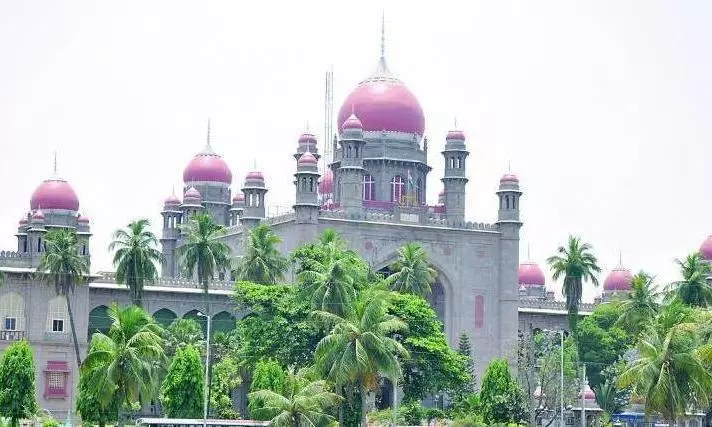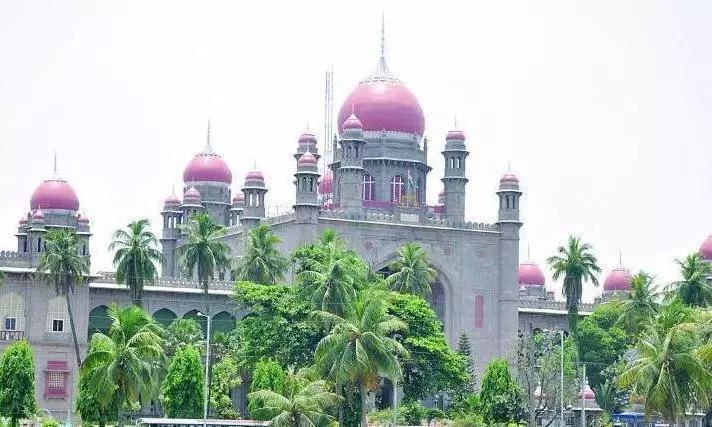
Hyderabad: The Telangana High Court will hear writ plea complaining of inaction by the Medchal-Malkajgiri collector pertaining to opening of five schools in Uppal. Justice C.V. Bhaskar Reddy was dealing with a writ plea filed by Budget Recognised Schools Managements Association and 17 others challenging the operation of schools that allegedly lack permission. The petitioners contended that schools like MasterMinds, Tiny Tots and several others are running without required permissions and contrary to the GO dated January 1, 1994. The petitioners stated that as per law, no school could be established without obtaining a certificate of recognition from the appropriate authority. As a result, permission for the opening and operation of several respondent schools needed to be withdrawn. As counsel for the respondents sought time to file their response, the judge posted the matter for further adjudication.
Writ for Nodal Officer for Animal Welfare
Justice B. Vijaysen Reddy of the Telangana High Court disposed of writ plea seeking a direction to the Director General of Police to appointing a nodal officer for the Animal Welfare Board of Telangana. The judge was hearing a writ plea filed by Akhila Bharat Krishi Go Seva Sangh, Gau Gyan Foundation and others. The petitioners referred to two circulars issued in August 2020 and June 2021 by the Animal Welfare Board of India and contended that they contemplated appointment of a nodal officer for animal welfare not below the rank of assistant commissioner of police and sensitisation and training of police on dealing with animal cruelty cases. The petitioners stated that not following the circulars and not taking animal cruelty cases seriously were in violation of the Constitution and the Prevention of Cruelty to Animals Act. Counsel for the petitioner emphasised the importance of appointing a nodal officer to address the ongoing incidents of animal cruelty, and stated that several other states had made the appointments. The government pleader said that the assistant inspector general (law and order) was appointed as nodal officer to deal with animal cruelty cases. The judge after taking into consideration the same directed the nodal officer to implement guidelines issued by Animal Welfare Board of India and disposed of the writ plea.
HC rules on right of defence
Justice Sujoy Paul of Telangana High Court declared that the right of a person to defend a suit against him cannot be summarily adjudicated, and the defendant’s application for leave to defend could not be rejected. He upheld an order of the effect in a suit filed for recovery of about Rs 4 crore. The plaintiff filed a summary suit stating that the defendants did not have any defence as the suit relating to financial transactions based on promissory notes. If such a defence was pleaded before court, the same would be only for the purpose of defending the suit without any merits. The defendant successfully contended the right to defend the suit unconditionally. The defendant pointed out that it was the prerogative of the court to decide whether the permission to defend could be granted or not. In a case of this nature where the defendant had raised various objections in the affidavit before the court below, the court below was perfectly justified in passing the impugned order. Referring to the facts of the case, Justice Sujoy Paul said in the instant case, whether the defence was a sham or illusory could not be decided in a summary trial. The court said it was trite that the question of limitation was a mixed question of fact and law. A plain reading of the stand taken by the plaintiff and defendants, prima facie, showed that they were at loggerheads on the question of limitation, on the enforceability of the documents and whether the same was obtained under pressure, coercion, etc. It can be safely held that in a case of this nature where the factual matrix is in serious dispute and question of limitation is to be determined, it cannot be said that there exists no triable issue before the court below. Putting it differently, it cannot be said that defendants have practically no defence, Justice Paul added.
HC sets aside reopening of land order
Justice J. Sreenivas Rao of the Telangana High Court set aside the order of the RDO-cum-Land Reforms Tribunal, Warangal, in reopening a case at the instance of former MLA Raji Reddy of Warangal district and Md Dastagiri, former ex-councillor of Jangaon municipality. The judge found that, in the case on hand, the judgment passed by the Land Reforms Appellate Tribunal on September 23, 1981, had become final. The RDO-cum-Land Reforms Tribunal, Warangal, passed the impugned order/notice reopening the land ceiling proceedings after a period of 32 years, without considering the explanation submitted by the petitioner on several occasions and without assigning any reasons. The same is a gross violation of the principles of natural justice and contrary to law. Thakur Laxman Singh and members of his family challenged the notice issued in 2012 seeking to reopen the land ceiling declarations of the petitioner. Earlier, after the primary tribunal found the land to be in excess of the ceiling, the appellate tribunal allowed the appeal in part, holding that the land covered by residential houses, cattle sheds, vaagu, and port kharab were liable to be excluded from the holding of the petitioners/declarants. The tribunal remanded the matter in respect of others, which were under submergence of tank water, and rejected the claim of the petitioners relating to the examination of land covered by tank submergence from the holding by its order dated June 6, 1979. Finally, it was found that even the tank land was excluded way back in 1983. At the instance of the former MLA and councillors, multiple attempts were made. Allowing the writ petition, Justice Sreenivas Rao noticed how the holdings in favour of the petitioner had become final. It is pertinent to mention here that the RDO-cum-Land Reforms Tribunal, Warangal district, without forming an opinion and without giving reasons as to how the proceedings required reopening, passed the cryptic impugned order/notice and reopened the land ceiling case proceedings, which had been concluded in 1981, i.e., after the lapse of nearly 32 years, without considering the explanation submitted by the petitioners, Justice Sreenivas Rao held. He stressed that it was relevant to place on record that reasons were the heart and soul of the order passed by the authority. Non-recording of reasons could lead to dual infirmities: firstly, it may cause prejudice to the affected party, and secondly, more particularly, hamper the proper administration of justice.
